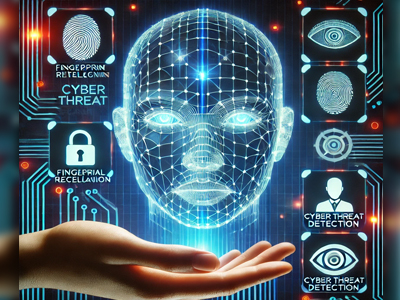The Future of AI in Security: Enhancing Surveillance & Threat Detection

Artificial Intelligence (AI) is transforming security by enhancing surveillance, automating threat detection, and reducing response time. AI-powered analytics, facial recognition, and predictive security measures are making security systems smarter and more efficient. This blog explores how AI is reshaping the security industry and what the future holds for AI-driven security solutions.
Advancements in AI Security
1. AI-Powered Surveillance: Modern security systems use AI to analyze video feeds, detect suspicious activity, and alert authorities in real-time.
2. Facial Recognition Technology: AI enhances access control and identity verification in high-security areas, reducing the risk of unauthorized access.
3. Predictive Threat Detection: Machine-learning algorithms can anticipate security threats based on historical data and behavioral analysis.
4. Automated Security Responses: AI-driven systems can trigger lockdown procedures, notify law enforcement, and activate countermeasures instantly.
Benefits of AI in Security
• Faster Response Time: AI allows security personnel to act swiftly in case of a breach or emergency.
• Enhanced Accuracy: AI reduces human error, ensuring better identification of threats.
• Cost Efficiency: Automating security tasks minimizes labor costs and improves efficiency.
• Scalability: AI security solutions can be adapted to various industries, from banking to public infrastructure.
Challenges and Ethical Concerns
• Privacy Issues: AI-powered surveillance raises concerns about personal privacy and data security.
• Bias in AI Algorithms: Inaccurate or biased data can lead to wrongful identifications and discrimination.
• Cybersecurity Risks: hackers, requiring robust cybersecurity measures, can target AI systems themselves.
• Legal and Regulatory Hurdles: Governments must establish laws to regulate AI-driven security systems responsibly.
Case Studies
1. AI in Law Enforcement: Police departments worldwide use AI-powered analytics to track criminals and prevent crimes before they occur.
2. AI in Corporate Security: Companies deploy AI-driven surveillance to monitor employee behavior and prevent internal threats.
3. Smart City Security: AI enhances public safety by integrating with traffic monitoring and emergency response systems.
Future Prospects
The future of AI in security looks promising, with continuous advancements in deep learning, autonomous surveillance, and integration with Internet of Things (IoT) devices. As AI technology evolves, security professionals must balance innovation with ethical considerations to create a safer and more secure world.
Conclusion
AI is redefining security by making systems smarter, faster, and more efficient. However, while the benefits of AI-driven security solutions are evident, addressing ethical, legal, and cybersecurity challenges is crucial. As AI continues to advance, the security industry must adapt to harness its full potential responsibly.





.png)







